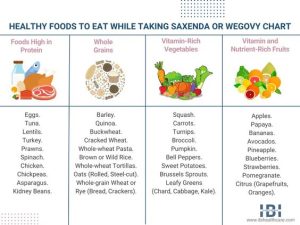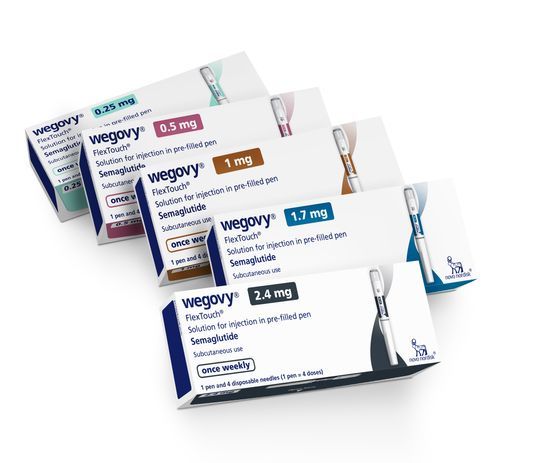While the new generation of anti-obesity drugs, known as GLP-1 receptor agonists, proves effective, long-term adherence remains a challenge. A recent study in the “Obesity” journal reveals that only 44% of individuals using weight-loss medications continue after three months, dropping to 19% after a year.
Enhanced adherence, as seen with medications like Wegovy, results in quicker and sustained feelings of fullness, correlating with greater weight loss. However, why do individuals struggle to persist?
This challenge is not exclusive to anti-obesity medications but extends to other conditions like type 2 diabetes, chronic obstructive pulmonary disease, and hypertension. Research indicates that nearly half of those prescribed antihypertensive medication cease usage by the end of the year.
Factors influencing medication continuation include the symptoms (or lack thereof) of the treated condition, various aspects of the healthcare system (such as accessibility to physicians or medication costs), and characteristics of the treatment itself (such as dosing frequency or tolerability of side effects).
The frequency of GLP-1 administration has proven crucial, particularly for diabetes patients. Those taking GLP-1 medications weekly show higher adherence than those requiring daily injections.
Concerns about potential side effects of GLP-1 medications have drawn attention. Clinical trials report discontinuation rates ranging from 15% to 25%, with approximately half discontinuing due to gastrointestinal issues.
However, overall, the side effects of GLP-1 medications are generally mild to moderate. Some experience nausea in the initial four weeks, but dosage adjustments may worsen symptoms. Diarrhea, constipation, fatigue, and sulfuric belching are also possible.
Notably, the persistence of GLP-1 medications appears significantly greater than other weight-loss drugs.
Clinical trials suggest that optimal weight loss with GLP-1 medications takes about a year, though some may desire faster results. A notable 6% weight loss within 12 weeks could serve as motivation to continue treatment.
Reports indicate a global shortage of GLP-1 medications, partly due to their remarkable success. This shortage may pose challenges for patients striving to maintain medication use.

What Happens When People Stop Medication?
While debates exist about the sustainability of GLP-1 medications for weight loss, a more pertinent question arises – what happens when individuals discontinue this treatment?
These medications may be hailed as game-changers in weight loss, but several studies suggest a significant weight rebound upon treatment cessation. For instance, participants in the international Step-1 trial, stopping weekly Wegovy treatment, regained over half their weight within a year.
A recent study indicates that those discontinuing Mounjaro (another GLP-1 medication) similarly regained about 60% of their weight.
Conclusions drawn from these studies suggest that as long as medication is not stopped, weight loss can be maintained.
It’s well-established that weight regain is common once interventions cease, irrespective of the weight loss method employed.
Weight loss induces biological and energy changes that may enhance health but also drive weight regain – as discussed in a previous dialogue article.
However, the mechanisms of action of these new weight loss drugs may increase the likelihood of weight regain. Artificial GLP-1 injected differs from the naturally occurring GLP-1 (endogenous GLP-1) in your body.
Typically, you release GLP-1 after meals, but its duration is brief as it quickly breaks down.
In contrast, injected artificial GLP-1 provides a higher and longer-lasting dose, equivalent to [10 times] the normal activity of GLP-1. This level naturally occurs only after a substantial meal, but these drugs persist in the bloodstream.
Although this is akin to overloading with GLP-1, you might become less sensitive to its effects, at least in animal studies. This is good news as it not only induces satiety but maintains it, despite your body attempting to make you hungrier.
However, sustaining such high levels of “fake” GLP-1 may lead to producing less endogenous GLP-1.
Cold Turkey
All of this is not a problem, assuming you continue artificially maintaining GLP-1 levels. However, as any addict will tell you, bad things happen when you go “cold turkey.”
In this scenario, when you cease taking these medications, active GLP-1 levels plunge drastically. No longer restrained, hunger and appetite are likely to resurge retaliatorily.
Combining this with all other factors contributing to weight regain, you may end up heavier than when you began.
It’s recognized that these “game-changer” drugs make weight loss more achievable now, but as always, our focus should be on the primary challenge of weight maintenance.
